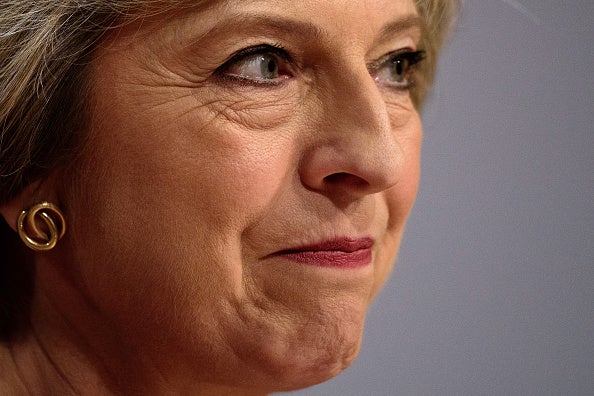Conservative MPs demand Parliament has a say on Brexit process
Both pro and anti-Brexit Tories warn Theresa May not to shut Parliament out of decisions on EU withdrawal

Conservative MPs on both sides of the Brexit divide stepped up pressure on Theresa May today not to shut Parliament out of Britain’s EU withdrawal.
Andrew Tyrie, the chairman of the powerful Treasury select committee, said “the public would expect” the Prime Minister to allow MPs to debate her negotiating position before she triggers Article 50.
And former attorney general Dominic Grieve went further, warning the Government could be brought down if it tried to force through a new deal with the EU without MPs' approval.
Meanwhile, one pro-Leave Tory backbencher, Stephen Phillips, attacked the “tyranny” of denying MPs a vote on the Government's stance when the two-year Article 50 process starts, before the end of March next year.
The pressure came as David Davis, the Brexit Secretary, delivered a Commons statement, updating MPs on Ms May’s timetable for Brexit and plans for a ‘Great Repeal Bill’.
Mr Phillips was granted permission by Speaker John Bercow to seek MPs' support for an urgent debate this week on the Brexit negotiations and will make his case on the Commons floor later today.
The Sleaford and North Hykeham MP said that bypassing Parliament was “simply not an acceptable way for the executive to proceed”,
In a letter to Mr Bercow, he wrote: “I and many others did not exercise our vote in the referendum so as to restore the sovereignty of this Parliament only to see what we regarded as the tyranny of the European Union replaced by that of a Government that apparently wishes to ignore the views of the House on the most important issue facing the nation.”
Mr Grieve told BBC Radio 4's World at One: “There's a very well-established constitutional convention that any signing of a new treaty or alteration of an existing treaty of importance needs to be put to the House of Commons for its affirmative approval.
"My view is that this is a matter where the approval of the House of Commons needs to be sought before the Article 50 process is triggered.”
Mr Grieve warned against the Government striking a Brexit deal which “can't command parliamentary approval”, adding: “It's perfectly obvious in those circumstances such a Government wouldn't survive. I would have thought there would have to be an election.”
Meanwhile, Mr Tyrie told the same programme: “British interests will be best served by an early and full and detailed explanation from the government of what its negotiating position is before it embarks on those discussions.
“What has never been discussed in any depth is what we arrive at. I think there’s a majority in parliament for doing that. And I think the public would expect us to do that.”
However, Downing Street stuck to its insistence that Parliament – while able to “debate and scrutinise” Brexit – must not be seen to be “blocking the will of the people so clearly expressed in the referendum in June”.
A spokesman said: “Having a second vote, or a vote to second-guess the will of the British people, is not an acceptable way forward.”
Meanwhile, the Prime Minister said she hoped for a “smooth and orderly” Brexit, speaking in Copenhagen after a meeting with the Danish prime minister Lars-Lokke Rasmussen.
Join our commenting forum
Join thought-provoking conversations, follow other Independent readers and see their replies
Comments